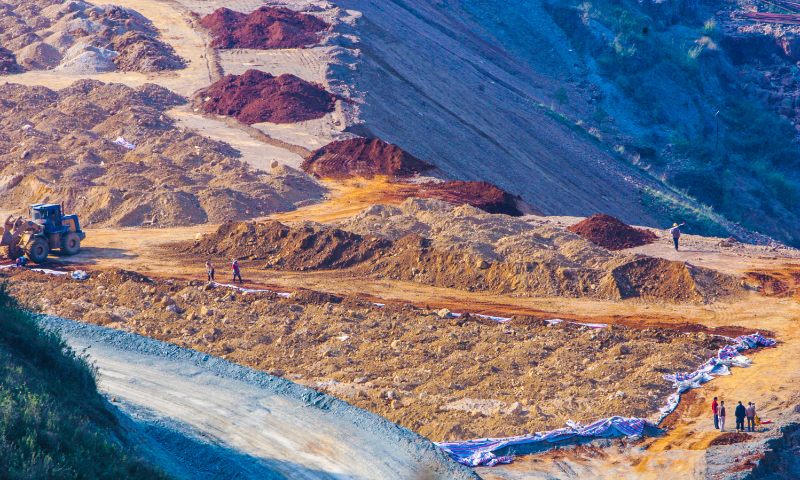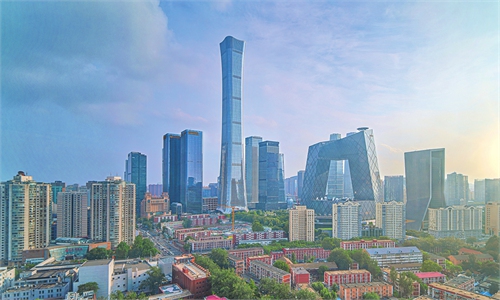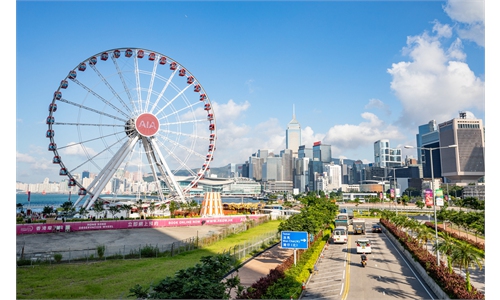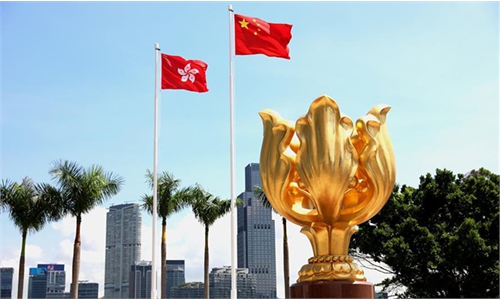
File photo of a rare-earth mine Photo: VCG
Two Chinese ministries on Tuesday set the second batch of 2024 rare-earth mining output quotas at 135,000 tons, taking the total so far this year to a new high of 270,000 tons.
In 2023, China issued three batches of rare-earth mining output quotas for the first time, with the yearly total reaching 255,000 tons. The total of the quotas issued so far this year is 5.88 percent higher than the full-year figure in 2023.
The quota for smelting and separation of rare earths was set at 127,000 tons, bringing the year-to-date quota for smelting and separation to 254,000 tons, according to a notice jointly issued by the Ministry of Information Technology and the Ministry of Natural resources.
Rare earths consist of 17 elements that are widely used in high-tech products ranging from flat-screen TVs to lasers and hybrid cars.
Liu Enqiao, a senior analyst at Beijing-based Anbound Think Tank, attributed the surge mainly to growing domestic demand.
"China's fast-developing new-energy sector, including photovoltaic products, automobiles, batteries, and other new products and materials use rare-earth resources, so increasing domestic consumption may have led to the higher quotas," Liu told the Global Times on Wednesday.
Liu said the growing demand for rare earths is also seen in the chip industry, especially among makers of automotive-grade chips and advanced process chips.
Some Western media outlets have hyped China's export controls on key resources, which observers noted are in line with China's national interests and international practices.
Measures taken by China are in line with international practices and represent responsible export management amid global uncertainty, Zhou Mi, a senior research fellow at the Chinese Academy of International Trade and Economic Cooperation, told the Global Times on Wednesday.
Export controls do not mean a complete ban, as proper international cooperation that meets the commercial interests of China and the involved parties can be carried out, said Zhou.
"Changes in the mining and smelting of rare-earth resources are based on shifts in global market demand, with the overall trend rising. China's relatively mature processing capacity will help ensure a stable supply, while the country is steadily and effectively promoting economic and trade cooperation and exchanges in relevant fields and at the international level," Zhou noted.



